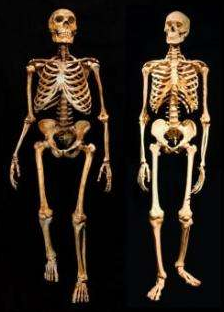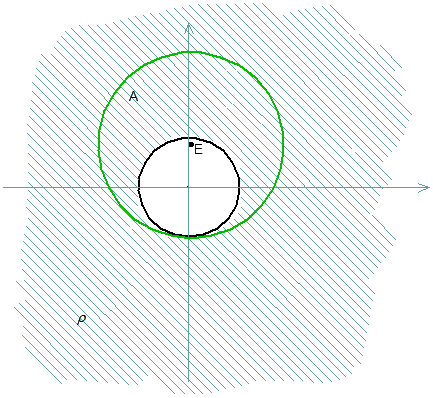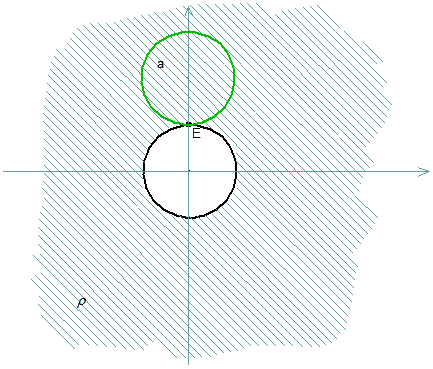Everything posted by Danijel Gorupec
-
List of requirements for new theories.
I also think that a point is missing - one that a theory should not be more complex than necessary.
-
A reverse panspermia
My thinking was more down to solar system. Possible targets don't have to be Earth-like. Perhaps: - Mars sub-surface - clouds on Venus - oceans of Europa, Ganymede, Enceladus I guess, a simplest type of experiment would be just seed those places with collection of unicellular organisms and observe how things will develop. (Imo, it would be harder than we think).
-
A reverse panspermia
I am supporting the idea (once we are damn sure the target world is sterile). Much to learn about life. The problem is: who decides what to do and how to proceed. There is no 'world-level scientific government' or similar. So, it seems thugs will just happen. I understand, we had already some experience with unintentional life spreading on ISS. But ISS is a nice place. So, I still wonder if all this sterilization of Mars rovers is necessary - maybe we wouldn't be able to spread life there even if we try hard. Thinking to extremes: what if we never ever encounter any sign of life anywhere in the Universe - would we then be morally obligated to spread it out, or should we keep it confined here on one fragile planet?
-
Light in a box (split from Cosmological redshift, thought experiment)
Sorry, if I am a bit off topic, but just a side question out of curiosity - can bouncing light in a fixed box have any wavelength, or only some discrete values?
-
The Novak Djokovic Debacle:
"He is Novak, Serbian, he won't cry, so I cry for him." Was this his debacle, or a debacle for a man is to give up his principles?
-
Modern Humans older than previously thought
What an uneasy thought, considering that it seems to me the homo sapiens was moslty on the receiving end of this 'interbreeding' process.
-
Does a Static EM Field Acquire Mass Due to Stored Energy?
It is something. Although it does not show that the distribution of mass/energy is as expected from the energy density formula. I have personal interest in confirming the density formula, so I searched quite a lot. All measurement proposals seems out of our reach (for many years to come).
-
Does a Static EM Field Acquire Mass Due to Stored Energy?
Interesting... I was under impression that we generally believe that static field indeed gains mass due to stored energy - and this mass is distributed exactly as you would expect from the energy distribution. Are there any theoretical reasons to doubt this? I do know that we don't have any experimental confirmation of this (or I couldn't find any).
-
Are Vegan's, a help or a hindrance to, our future?
@Peterkin, I basically agree with everything you say. But why would you think that it is a problem if man creates an environment where a special kind of animals (farm animals) would thrive? Is it wrong to create a new type of ecological niche and populate it with adapted animals? I agree that in practice animal framing often turns into a horror story, but here I am asking purely theoretical 'in-principle' question... In my opinion, animal farming is not inherently morally problematic.
-
Are Vegan's, a help or a hindrance to, our future?
One (minor) problem with veganism - as I understand it, the vegan diet is not instinctive - it requires education (especially for vegan parents). Implemented wrongly, vegan diet might cause some individual suffering and increased medical cost for society. One (minor) note about ecological footprint - while in rich societies using freezers is probably more eco-friendly way to deal with crop surpluses, in other parts of world there are still families that cannot afford freezers. Storing surpluses into animals (pigs) would then be more eco-friendly than letting the crop rot on the field. One (minor) note about animal welfare - while unnecessary animal suffering is a very unnecessary thing, it is not clear to me if responsible animal farming is that much immoral. I wouldn't be surprised if average life span of some farm animals is greater than closely related wild species. Some of most successful animal species are domestic animals. Some of them are so aggressively selected that they cannot live outside of the farm-machine - one could argue that for these beings, being eaten is the life destiny and they can only succeed in farming environment.
-
Dark matter
So, you think that when GR is accounted for, then it will turn out that only the mass within Earth's orbit will affect Earth's orbit - by making the orbit tighter - even if the whole Universe is uniformly filled with certain mass density? And, consequently, by examining revolution speed of stars in a galaxy, scientists were able (and actually did) calculate that there is no significant uniformly-distributed component of dark matter density?
-
Dark matter
Sadly, I might never arrive to learn GR... But if we limit ourselves to the old Newton space, we can luckily analyze certain questions from this thread by simple geometry. First, can mass evenly distributed outside Earth's orbit have any gravitational effect on the Earth? Down there is a picture of 2D newtonian-like universe (linear, infinite): In the center there is Sun. The Earth is orbiting it - Earth's position at some instant is shown as point 'E''... I added some mass density (hatched) everywhere except for one circular Sun-centered 'bubble. The 'bubble' is slightly larger than the Earth's orbit. So, can this distributed mass (hatched) have any gravitational influence on Earth? Easy; due to symmetry all the gravitational effect of distributed mass on Earth that is outside of the Earth-centerd green circle will cancel out. Only the mass within green circle (the crescent-moon-shaped region 'A') will provide net gravitational influence to the Earth. So, It looks quite obvious to me that the distributed mass will indeed affect the Earth (it pulls the Earth in the positive direction of the vertical axis). The same approach... Down there I depicted the same case, but now the 'bubble' is exactly the size of Earth's orbit. Again due to symmetry, I can actually ignore all the distributed mass except for the region 'a' inside the green circle... Because the region 'a' is circular, it is very easy to calculate its mass and therefore its influence on the Earth. In fact, the region 'a' is the same size as the region of the 'bubble'.... [This means that if we fill the 'bubble' also with the same mass density as the rest of space, there will be no net gravitational effect on the Earth... Something that was just obvious to me even without this complex discussion.] If you ask for more realistic space (GR, limited observable space, limited universe age, finite gravity propagation speed etc.) I cannot analyze this.
-
Dark matter
I try to put all observers down to Earth No, I don't see how the Earth's orbit will get tighter if I add uniform mass density to the whole Universe. It would get tighter if I spread the added mass in a large sphere centered on the Sun - and only the part of the mass inside Earth's orbit would affect the Earth, exactly as you said. But I didn't do that - Instead I distributed the mass uniformly over the whole universe (I didn't center it at the Sun). In my opinion, adding uniform mass density (positive or negative) to the whole Universe, does not change local trajectories of gravitationally bound objects. It might affect, as you said, the expansion of the Universe as a whole, but this is an even darker topic. It seems to me, there is still enough wiggle space in our theories and observations that we cannot say for sure there is no additional (positive or negative) offset to the observed distribution of dark matter density.
-
Dark matter
[I always enjoyed Susskind's lectures - did watch quite a few of them, but didn't know he has the cosmology series too.] Are you only considering the case of uniformly distributed mass density? Because if I put a black hole just outside Earth's orbit, it will affect the Earth trajectory. But even with uniformly distributed mass I find your claim confusing... Suppose you only have Earth orbiting the Sun. Now you add uniform mass density to the whole universe - you say that the Earth will only 'feel' the part that is inside its orbit? Does it mean the Earth will go into a tighter orbit with greater velocity? Ok... but remove the Sun now - will Earth go into some other orbit (because it feels the gravitational attraction of the mass inside its orbit) or will the Earth continue straight?
-
Dark matter
This is exactly what I am talking about -> is this claim a jumping in conclusion? Because of effects like dark energy I cannot dare to claim that dark matter attracts. It might as well repulse... But I know very little, and maybe I am missing an important bit of information that indeed shows it is attractive.
-
Dark matter
Sure, but there can be negative mass within the galaxy that will produce an effect on the galaxy. I suppose it would be possible to came out with some negative-mass-density profile (as a function of the distance from the galaxy center) that would give the observed gravitational effect.
-
Dark matter
Why? It seems the same to me - you can have positive-mass around galaxies, or you can have negative-mass everywhere else. How could you tell the difference?
-
Dark matter
Thanks for the video, I liked it. So, without the dark energy nuisance, we should be able to estimate the portion of uniformly distributed dark mater. But because of the poorly understood dark energy, I guess we cannot do much of an estimation? [Looking at equations derived by Susskind, purely mathematically speaking and putting things upside down, if the dark mater has a negative mass it might cause accelerating universe... supposing large majority of it being actually distributed uniformly, and being only slightly less concentrated around galaxies; as we can detect from its gravitational influence.]
-
Dark matter
Bad English. I wanted to ask, if there is a stuff that only interacts gravitationally, and if such stuff is distributed uniformly - are there any means to detect it?
-
Dark matter
Similar to @Genady, I wonder why it appears clumped if it does not clump - does it mean that, at this age of universe, the gravitational radiation was enough to clump it into galactic halos, but not yet enough to form it into galactic discs? Also, if DM is perfectly uniformly distributed, would we at all be able to detect it - could it be that there is much more of it around, but we only detect so much of it because it is not perfectly uniform? This is the first time I hear such argument. Puzzling. Anything more to read about it? Did pure mathematicians have an attempt at it - by examining if GR equations can at all behave in this 'unexpected' way in very complex systems?
-
The Big Misconception About Electricity
At first glance, I didn't find any error in the video. Although some things could be stated more precisely (and I agree with Studiot that the reference to telegraph cable only blurred the explanation). For those who like to think in more common terms, just note that such a wire loop would have a very large inductance (back-of-envelope calculation, something over 700 Henry), so it is sure (as they also said) that the voltage at the lamp would raise slowly (that is, the first effect at the lamp will be at roughly 1/c time, but it will take much longer for the thing to settle). I would also comment that if wires are arranged in some other way, the result could be different. For example, if both wires (plus and minus) are not separated away from each other, but are closely packed inside a long cable that goes very far away and then returns to the lamp (or especially if a coaxial cable is used), the lamp will only start lighting much later (considering a somewhat idealized case).
-
Definition of Atheism
I see... there is the whole zoo :). Ok... I am a practical person... if too many people would suffer, then science may tactically tone down some of its conclusions... (but that is quite a question to discuss, I would say) What do you mean by 'serious atheists'? If you speak about those anti-theists, then I agree... I consider myself an atheist (not agnostic, if I understand the positions correctly), but still find anti-theists scary. Hey... but that would make you a non-theist (I just read this from the article - as they say, that would put you among the rarest atheists)
-
Definition of Atheism
Hmm... I hold a somewhat different view. Even if science cannot make a rigorous prof (and therefore a claim) that there is no God, it should still honestly advise general population that it is not smart to spend extensive resources (time/money/effort) only to please any god(s). Not having a rigorous proof does not mean you should refrain from making a honest advice... In fact, science must clearly state its best advice and not keep silent (I don't think it has much to do with quality of equipment available to science; even if science only has most rudimentary tools, it should provide advice the best it can at that moment... loud and clear, even if it has to apologize later). Regarding OP, I am undecided which of the two would be a better definition of atheism. I think we should have different words for the two definitions (maybe we do, only I don't know them).
-
Bringing back ancient animals
Neanderthals, I would like to greet. I kinda hope this might actually happen one day. T-rex or similar because I romantically hope they were colorful and maybe had a comb. Dodos, because I am hungry right now and the T-rex reminded me on chicken. I will keep one choice for the future - possibly to rescue mountain gorillas.
-
Wind Turbine Wall
Boh. Microgeneration... what is the most successfull microgeneration technology today? I only know roof solar; is there anything else? Those walls seem to be intended as a microgeneration technology... but I am afraid microgeneration is loosing the battle in the green battlefield. Bigger and bigger wind turbines are winning. Once we completely switch to green power, turbines might become monstrous. Solar plants too... If microgeneration ever becomes an important contributor, the ground-breaking discovery will not be how the energy is produced, but how we managed to network all this together into a smooth and efficient business. Sorry for the blues.



